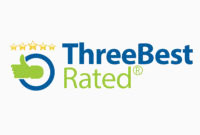Selling a Business in British Columbia

Experienced attorneys assist you with business endeavors in Vancouver
If you are looking to sell a business in B.C., your first move should be to contact a knowledgeable attorney. Since commercial transactions can involve millions of dollars and multiple parties, having an attorney by your side early on can prevent costly mistakes down the road.
At Castle Law LLP, we can provide you with competent legal help at every phase of the process — from initial negotiations to the drafting of a letter of intent, and ultimately, the signing of a purchase agreement. No matter what stage of the business-selling process you are at, our attorneys can help you navigate successfully.
Why would someone want to buy your existing business?
Few endeavors are as exciting as buying and selling commercial real estate.
If you are wondering why someone would be interested in purchasing your business, consider the following pros and cons of buying a company:
Pros
- More likely to succeed with a business that is actively up and running as opposed to starting from scratch.
- Decreases initial startup time since the business may already have properly trained workers, ongoing dealings with vendors, a secure customer base, sound company policies, etc.
- Can make informed decision by reviewing the business’s history.
- The business’s products or services have already been market tested allowing brand leverage.
- Because the business has a proven track record, you are more likely to obtain financing without issue.
Cons
- Your initial investment cost may be more expensive than creating as startup.
- The business may require substantial reparations and updating.
- Contracts in place from the previous owner may need to be renegotiated.
- Your vision may conflict with the current company culture.
The buying and selling process
These are basic steps in the buying and selling process:
- Do your research — First, you need to investigate a prospective business to determine if it’s worth the investment. Consider:
-
- The last 3 years of the company’s financial records
- The asking price and whether the value is in accordance with market value.
- List of existing and previous customers
- List of suppliers, vendors, distributors, and other providers
- List of workers and their qualities, tenure, salaries, etc.
- List of contracts required for the business
- List of all licenses, debts, and liabilities of the company
- The current owner’s role and value in the business
- Whether there are any anticipated changes in industry or business
-
- Determine structure — Next, you must determine if it is an asset or share sale. A share sale means the buyer will obtain all the company’s assets, obligations, and liabilities. If it’s an asset sale, the buyer can handpick the assets they are interested in purchasing.
- Perform due diligence — You must perform legal due diligence to determine the risks associated with buying the business. Our lawyers can perform a rigorous search to determine if a prospective property has any issues.
- Prepare documents and close the deal — Lastly, your lawyer will prepare the following documents, and close the deal:
- Letter of Intent (LOI) — The LOI is the first document between a seller and a potential buyer, and it records the primary aspects of the transaction.
- Purchase and sale agreement — Your purchase agreement is the main contract that governs the terms and conditions of the sale, when and how the purchase amount will be paid, any restrictions imposed on the seller and how legal issues that could affect the process will be handled.
Preparing a letter of intent
After you and the buyer agree to the structure of the sale, a “letter of intent” or a contract of purchase must be drafted. In its simplest form, an LOI lays out the basic terms of the contract, including: type of purchase (shares or assets), an estimated list of assets being purchased as well as liabilities to be assumed, the purchase price, the estimated closing date, and any other conditions to complete the closing:
- The LOI generally includes confidentiality provisions and rights of inspection (for physical assets) in addition to the books and records of the business. The confidentiality provision exists to ensure a buyer does not make improper use of the business information should the transaction not be completed.
- A buyer also has the option of requesting that the LOI provide permission for negotiations with central workers and suppliers before the closing date.
- Most buyers typically require that the LOI also include a provision to limit your ability to sell the business to any other party besides the buyer for a set time period.
- Once the LOI is signed, the buyer will conduct a more comprehensive review of the business, analyzing financial statements, operations, and contracts to ensure the purchase is sound. This process is called due diligence.
Next, both the parties must agree and sign the purchase agreement which will drafted by their lawyers and will list all the terms and conditions of the sale.
In the purchase agreement, the buyer will request that the seller provide various representations and warranties regarding the operations of the business and may include the information about the condition of specific items, such as the equipment, customers, suppliers, inventory, contracts, workers, leases, financial statements, taxes, and any civil actions related to the business.
Our legal team can go over the representations and warranties with you to ensure that they are precise and to make sure that they are reasonable.
For the seller, the purchase agreement will contain the following conditions of the closing:
- If a share sale, acquiring proper releases from the corporation of the selling shareholders
- Obtaining proper releases from lenders, equipment lessors, landlords and any other party to whom the corporation provided a guarantee of the corporation’s obligations
For the buyer, the purchase agreement will contain the following conditions of the closing:
- Obtaining releases from applicable third parties as well as the seller
- Ensuring proper transfer of the purchased shares
- If an asset purchase, obtaining the proper assignment of agreements and leases
How should you determine a business valuation?
There is no magic formula for revealing the value of a business. That said, there are many methods you can use to evaluate a prospective business, including:
- Asset-based valuation — First, combine the business’s total value of physical and intangible assets. Then subtract any liabilities.
- Market-based valuation — Review and write down your business’s sales revenue. Next, compare that value with similar companies in your industry.
- Earnings-based valuation — Take a look at the business’s previous earnings to gain insight on future financial quarters.
- Discounted cash-flow valuation — Determine the current value of a company’s future cash flow
For more information, consult with a skilled business attorney in Vancouver.
Contact Castle Law LLP to help with buying and selling commercial real estate in B.C.
Castle Law LLP is dedicated to helping entrepreneurs buy and sell businesses of all sizes. To speak with an attorney about the sale or purchase of businesses in Vancouver, call or contact us online today.

